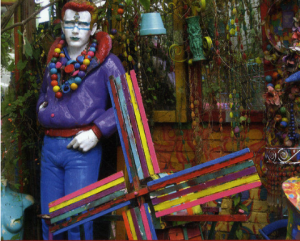![]() The Amsterdam Center for European Ethnology (ACEE) is a coordinating platform for research and higher education in the field of European Ethnology. It stimulates scientific exchange and cooperation between researchers. The focus is on the interdisciplinary research of cultural practices in daily life in their social, historical and geographical context in the Netherlands and Europe. This research is carried out from both a historical and comparative perspective. It employs methods and theories from ethnology, anthropology and history. In its research European Ethnology uses a bottom up, non-institutional perspective, including the analysis of apparently trivial cultural practices and aspects of everyday human behavior.
The Amsterdam Center for European Ethnology (ACEE) is a coordinating platform for research and higher education in the field of European Ethnology. It stimulates scientific exchange and cooperation between researchers. The focus is on the interdisciplinary research of cultural practices in daily life in their social, historical and geographical context in the Netherlands and Europe. This research is carried out from both a historical and comparative perspective. It employs methods and theories from ethnology, anthropology and history. In its research European Ethnology uses a bottom up, non-institutional perspective, including the analysis of apparently trivial cultural practices and aspects of everyday human behavior.
Significant social-cultural, economic and political changes in modern Europe have influenced communities strongly. Identity, ethnicity, heritage and history have become key concepts in these processes. These concepts are not understood as abstract ideas, but as subjects that arise from and are given meaning in the experiences of people in their everyday life.
Globalization, unification, decolonization and migration have brought about a different way of dealing with the (un)certainties of everyday life. In order to cope with these (un)certainties or – in contrast – to internalize them people have a need for rituals, feasts, popular music, nostalgia, new identities or alternative religious movements. These are all topics that fit within the research framework of ACEE. As European Ethnology works from a historical-ethnological perspective, it also studies the dynamics of, for instance, emotions, material heritage and religious culture in the past.
ACEE is founded in 2014 and is based at the Meertens Institute, a KNAW research organisation that deals with everyday language and culture in the Netherlands.

